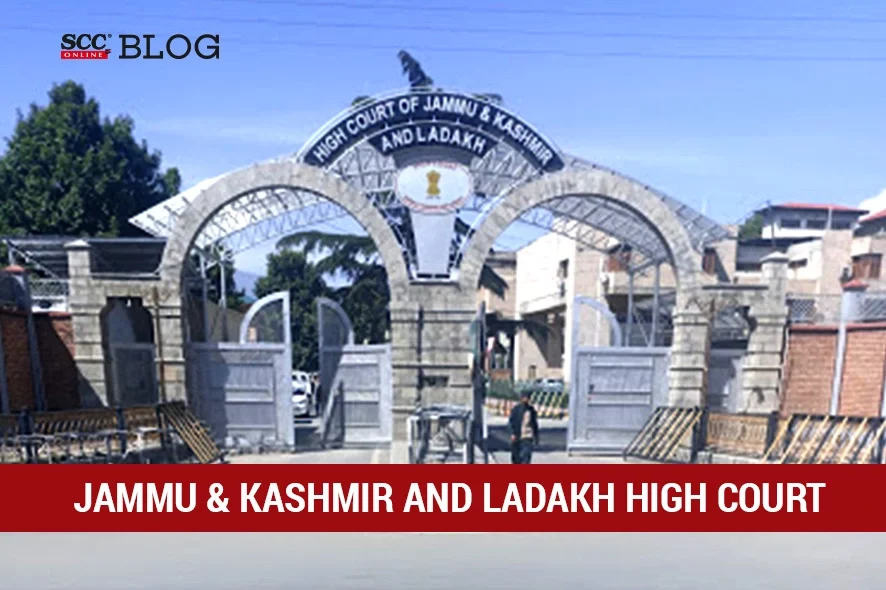Jammu and Kashmir and Ladakh High Court: While deciding an appeal, wherein the appellant argued that the respondents were required to be prosecuted for perjury under Section 340 of the CrPC as they had resiled from their earlier statement, a Single Judge Bench of Rajnesh Oswal, J.*, opined that for constituting the offence of perjury the false statement must be made deliberately and consciously. Taking note that the accused in the instant case was charged for commission of offences under Sections 376/506 of Penal Code, 1860 and Section 4 of POCSO Act, the Court opined that a perusal of the Section 22(2) of POCSO Act reveals that if a false complaint has been made or false information has been provided by a child, no punishment shall be imposed upon such child. “Once, the special Act prohibits the punishment of a child in respect of false information provided by a child, the child cannot be prosecuted for commission of offence of perjury”. Thus, the Court upheld the decision of the Trial Court and dismissed the appeal.
Factual Matrix:
Respondent 1 a minor accompanied by her father, lodged a complaint on 25-03-2020 at Police Station, Ramnagar that while returning back to her village from Ramnagar on matador, she was dragged to the nearby jungle and was sexually assaulted by the accused. The chargesheet was filed under Sections 376 and 341 of the Penal Code, 1860 (‘IPC’) and Section 4 of the Prevention of Children from Sexual Offences Act, 2012 (‘POCSO Act’).
The appellant contended that the respondents must be tried under Section 340 of the CrPC for the offence of perjury as they resiled from their earlier statement. Tt was further added by the appellant that, the Trial Court should have made a proper enquiry to the truthfulness of the version given by the hostile witness.
Per Contra, respondent 1 contended that she stated in her examination-in-chief that she was slapped thrice and denied the allegations of sexual assault. She further stated in her cross examination that the application was written by a person sitting outside the police station who advised her to make additions to the report, as the police cannot arrest the accused in a simple case of slapping.
Respondent 2 had also deposed the case in a similar manner that the accused slapped her daughter and that she was not aware of the offence of rape. Respondent 3 who is the father, had deposed to the same extent before the Trial Court.
The Trial Court declared the witnesses (the respondents) hostile but refused to prosecute them for perjury.
Court’s Assessment:
The Court opined that R1 was a minor when her statement got recorded, and she gave her statement in the Trial Court regarding slapping only. Similarly, respondent 2, the mother, narrated what was told to her by respondent 1, hence, it cannot be said that the respondents gave false statement.
The Court further opined that Section 22(2) of the POCSO Act states that if a false complaint has been made or a false information has been provided by a child, then no punishment shall be imposed on such child. The Court pointed that in instant scenario, respondent1 was admittedly 17 years old while the complaint was filed. Thus, she cannot be prosecuted for the offence of perjury.
The Court relied on the Supreme Court’s judgement in Aarish Asgar Qureshi v. Fareed Ahmed Qureshi, (2019) 18 SCC 172, where it was held that in order to punish a witness for offence of perjury, it must be established that the statement was made by him deliberately and consciously.
The Court thus held that respondent 2 cannot be prosecuted for perjury as she had deposed before the Magistrate what was disclosed to her by her daughter, and she was not an eyewitness at all. The Court further added that, R3 never made any statement before the Magistrate during the investigation, so he too cannot be prosecuted.
Thus, the Court dismissed the instant appeal as it was without merits.
[Union Territory of Jammu and Kashmir v. X, 2023 SCC OnLine J&K 1124, , decided on 22-12-2023]
*Judgment by Justice Rajnesh Oswal
Advocates who appeared in this case :
For the Appellant: Dewakar Sharma, Deputy Advocate General
For the Respondent: Rajat Gupta, Advocate









